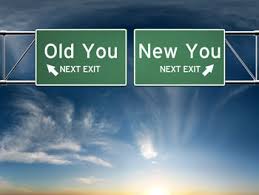|
What is Life Coaching (and What is it Not)?
Coaching is unlocking a person’s potential to maximize his/her own performance. A life coach is someone who offers guidance or advice regarding challenges, decisions, or questions in your life. The impetus for seeking a life coach often comes when a person feels stuck. To resolve this, a life coach will draw on approaches from psychology, counseling, sociology, and sometimes business, to help individuals set and pursue personally meaningful goals. These goals may center on several possible areas of development including relationships, career progression, creative pursuits, education, and more. In contrast, life coaching is not therapy or counseling, which pairs a mental health professional with a client seeking guidance around mental wellness. Life coaching also differs from mentorship and training, whereby a professional is paired with a more experienced professional, often in a workplace or industry setting. Methodology/approaches: Life coaching has grown out of decades of research in social psychology, clinical psychology, and professional coaching. The practice primarily has its roots in humanistic and transpersonal psychology (Williams, 2012). 1. Transformational Learning Transformative learning theory argues that humans hold a specific worldview informed by their experiences. This worldview acts like a frame of reference, which affects how we interpret events, assign meaning to the things that happen to us, and interact with our environment (Mezirow, 1997). Importantly, these frames of reference are elicited and operate unconsciously. This means that if we do not explore our frames of reference and understand our ingrained thought patterns, we remain at a disadvantage when we attempt to learn how to grow and change habitual behavior. Developing an awareness of how we unconsciously process events is central to life coaching philosophy, and is often critical for achieving transformative change. 2. Emotional Intelligence The theory of emotional intelligence (or EQ) posits that there are multiple types of intelligence beyond the commonly held idea of intelligence as a cognitive resource. Emotional intelligence refers to our “ability to perceive and express emotion, assimilate emotion in thought, understand and reason with emotion, and regulate emotion in the self and others’’ (Mayer, Salovey, & Caruso, 2000, p. 396). Those high in emotional intelligence are thought to be effective at managing their own emotions, and are good at identifying and considering others’ emotions. Conversely, those low in emotional intelligence rarely stop to think about what they are feeling, and are more likely to misread others’ motives and intentions. Theories of emotional intelligence have permeated many psychological fields of inquiry and practice, including life coaching. Specifically, life coaches use their knowledge of emotional intelligence to help clients recognize emotions as valuable sources of information (e.g., compassion). Life coaches can also tailor their teachings about emotional intelligence to apply to a range of personal and professional spheres. These can include management and leadership coaching, intimate relationships, and friendships/social networks. 3. Cognitive-Behavioral Theory Cognitive-behavioral theory is grounded in the combination of behavior theory and cognitive theory. The principles of the theory are widely used in therapeutic settings to help clients understand their thoughts and change their reactions and behaviors (Benjamin et al., 2011). A key model stemming from cognitive behavioral theory often drawn upon by life coaches is the Thought Model. This theory describes a process whereby activating events (Circumstances) (A) trigger thoughts (B), which lead to feelings (C) pertaining to our emotions and subsequent behaviors. This is the process creating the current results in our life (D) Life coaches are skilled at helping clients identify how distorted or irrational thoughts or beliefs stemming from activating events (circumstances) may have negative consequences. They are also skilled at intervening by helping clients to challenge and change problematic thoughts/beliefs in order to facilitate more positive consequences, such as lessened anxiety or increased adaptivity. 4. Experiential Learning Theory Experiential learning theory is a model of adult learning that essentially argues the benefits of learning by doing. The theory posits that individuals learn through a cyclical process of concrete learning, reflective observation, abstract conceptualization, and active experimentation (Kolb, Boyatzis, & Mainemelis, 2001). A life coach can facilitate all phases of this cyclical process by encouraging clients to reflect on their actions and their consequences. For instance, within the context of the The Thought Model, coaches can invite clients to experiment with adopting new, more adaptive, thoughts in response to challenging activating events. The hands-on principles of experiential learning apply well to coaching relationships, wherein the client is positioned as the driver of the relationship and the focus is on his/her day-to-day behaviors that serve as opportunities for experimentation and learning. The client experiences change in life results, through change of behavior. 5. Life Coaching as a Science While each of these theories has had a significant influence on the practice of life coaching, not all coaches draw explicitly from this literature alone. Paul Pettit has designed a program (MBLC) which combines practices from some of the theories mentioned above, with additional modalities drawn from phenomenology, neuropsychology, and energy-based practices including naturopathic reiki & reflexology. Disclaimer:The information provided on the BMS website, associated paraphernalia, and the programs & therapies offered, have been formulated through research conducted from a variety of evidence-based resources. This can include, but is not limited to, the tools & techniques offered in mindfulness practices, buddhist practices, meditation practices, reiki therapy, business practices, yoga practices, and exercise programs etc. When participating in our program/s or therapies, we cannot guarantee that you will have the same experiences or results as the founder of BMS, it's therapists / practitioners, or current and previous clients. BMS therapists & practitioners are accredited in their field of expertise, however they are not medical doctors and cannot provide medical advice. None of the information or programs we provide should be used as a replacement for seeking advice from your preferred medical health practitioner.
0 Comments
Leave a Reply. |
Archives
June 2024
Categories
|

 RSS Feed
RSS Feed